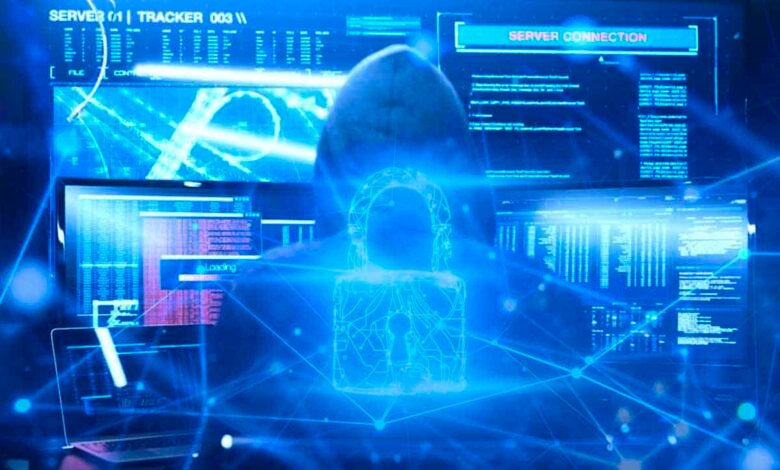
Career Opportunities for Ethical Hacking
As the digital landscape evolves, the need for skilled professionals who can secure networks, systems, and data has surged. Ethical hacking plays a crucial role in identifying vulnerabilities before malicious hackers can exploit them, making it a highly valued skill in the cybersecurity industry. Below are some key career opportunities for ethical hackers:
1. Penetration Tester (Ethical Hacker)
Role: Penetration testers (or ethical hackers) are responsible for identifying and exploiting vulnerabilities in a system, network, or web application to ensure that the system is secure against malicious attacks. They conduct controlled, authorized attacks to test the security of an organization’s infrastructure. Skills Needed: Proficiency in various hacking tools, knowledge of networking protocols, programming, and operating systems. Job Outlook: This is one of the most in-demand roles in cybersecurity, with companies across industries hiring penetration testers to assess and enhance their security.
2. Security Analyst
Role: Security analysts monitor an organization’s networks and systems for security breaches, investigate incidents, and develop strategies to prevent future attacks. They analyze vulnerabilities, run audits, and ensure compliance with cybersecurity standards. Skills Needed: Knowledge of network security, threat detection, incident response, and SIEM (Security Information and Event Management) tools. Job Outlook: With the increasing frequency of cyberattacks, security analysts are essential to keeping organizations safe. This is a growing field with opportunities across sectors like finance, healthcare, and government.
3. Security Consultant
Role: Security consultants provide guidance to organizations on how to secure their IT systems, networks, and data. They help develop security policies, conduct risk assessments, and recommend strategies for improving security posture. Skills Needed: Expertise in security architecture, risk management, regulatory compliance, and vulnerability assessment. Job Outlook: Companies often hire consultants on a contractual basis to implement cybersecurity solutions or address specific challenges, making this a flexible and rewarding career.
4. Incident Responder
Role: Incident responders are responsible for reacting to and mitigating security breaches, attacks, and other cyber incidents. They quickly identify the source of a breach, contain the damage, and help recover compromised systems. Skills Needed: Knowledge of malware analysis, forensic investigation, network forensics, and emergency response procedures. Job Outlook: As cyberattacks continue to rise in sophistication, organizations are increasingly looking for skilled incident responders to manage security crises.
Visit here- Ethical Hacking Classes in Pune
5. Cybersecurity Architect
Role: Cybersecurity architects design and implement robust security systems to protect an organization’s networks and data. They develop security strategies and choose appropriate tools, hardware, and software to create a secure IT infrastructure. Skills Needed: Deep understanding of security protocols, architecture, risk assessment, and design principles. Job Outlook: Cybersecurity architects are in high demand, especially in large organizations that need complex and customized security solutions.
6. Malware Analyst
Role: Malware analysts study and analyze malicious software to understand how it works and how to prevent its spread. They reverse-engineer malware code, track its origin, and identify its impact on systems. Skills Needed: Knowledge of reverse engineering, programming, debugging, and using tools like IDA Pro or Wireshark. Job Outlook: As cybercrime evolves and becomes more complex, the need for skilled malware analysts is growing.
7. Cybersecurity Manager
Role: Cybersecurity managers oversee a company’s cybersecurity operations, managing teams of security professionals and ensuring that the organization’s security measures are effective. They are also responsible for creating and enforcing security policies and ensuring compliance. Skills Needed: Leadership, risk management, incident management, and a thorough understanding of organizational cybersecurity requirements. Job Outlook: As cybersecurity threats escalate, businesses require experienced managers to lead their security teams. This role often leads to executive positions such as Chief Information Security Officer (CISO).
8. Network Security Engineer
Role: Network security engineers design and implement secure network solutions to prevent cyberattacks. They configure firewalls, intrusion detection systems (IDS), and VPNs, and monitor networks for any signs of unauthorized access. Skills Needed: Proficiency in networking protocols, firewall configuration, VPNs, intrusion detection/prevention systems (IDS/IPS), and threat monitoring. Job Outlook: This is a rapidly growing field, with a high demand for network security experts to secure the complex and vast networks that organizations use.
Visit here- Ethical Hacking Course in Pune
9. Compliance and Risk Analyst
Role: Compliance and risk analysts ensure that organizations follow cybersecurity laws and regulations. They assess the risk levels associated with data breaches and ensure that security policies align with industry standards like GDPR, HIPAA, and PCI-DSS. Skills Needed: Understanding of cybersecurity laws and regulations, risk assessment methodologies, and the ability to create compliance reports. Job Outlook: As organizations face increasing regulatory pressure, compliance and risk analysts are in high demand, especially in industries like finance, healthcare, and government.
10. Forensic Expert
Role: Cybersecurity forensic experts investigate cybercrimes, collect evidence, and analyze how a breach occurred. They often work closely with law enforcement agencies and legal teams to solve criminal cases involving digital evidence. Skills Needed: Knowledge of forensic tools, data recovery, evidence handling, and legal procedures related to cybercrime. Job Outlook: With the rise of cybercrime, forensic experts are increasingly sought after by law enforcement agencies and private security firms.
11. Chief Information Security Officer (CISO)
Role: The CISO is a senior executive responsible for overseeing the overall cybersecurity strategy of an organization. They manage all cybersecurity initiatives, ensure compliance with laws, and work to protect sensitive company data from internal and external threats. Skills Needed: Strong leadership, strategic thinking, understanding of security frameworks, and in-depth knowledge of risk management. Job Outlook: As cybersecurity threats become more prominent, the demand for CISOs is on the rise, especially in larger organizations with complex security needs.
12. Security Software Developer
Role: Security software developers design and build security tools and solutions that help protect systems from attacks. These tools can include firewalls, antivirus software, and encryption software. Skills Needed: Strong programming skills (especially in languages like Python, C++, or Java), a deep understanding of cybersecurity principles, and experience in software development. Job Outlook: The demand for software developers with expertise in cybersecurity is increasing as more businesses develop in-house security tools to protect their assets.
Visit here- Ethical Hacking Training in Pune



